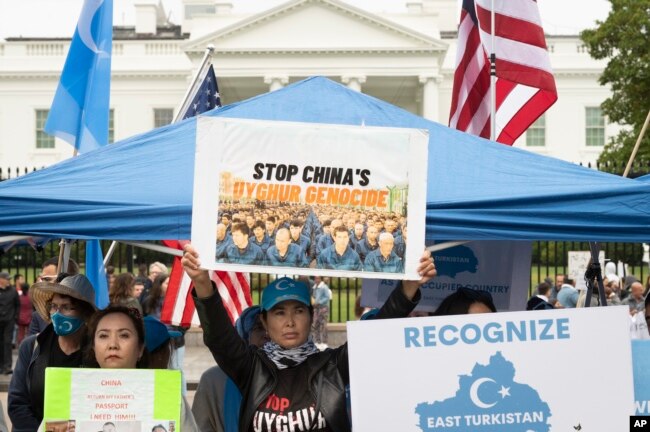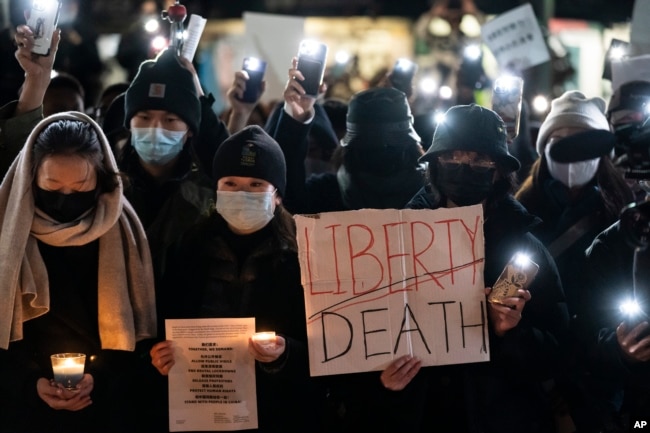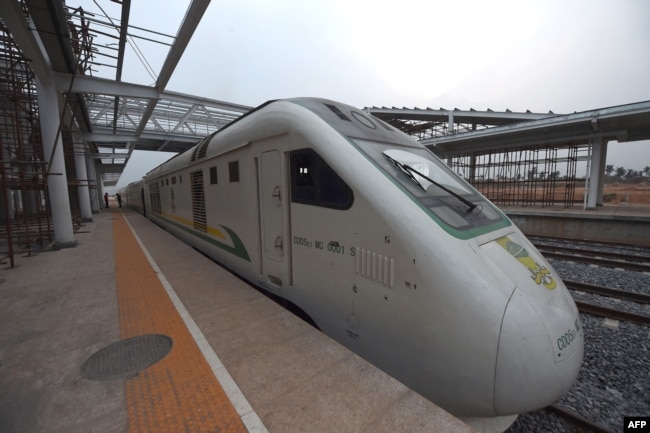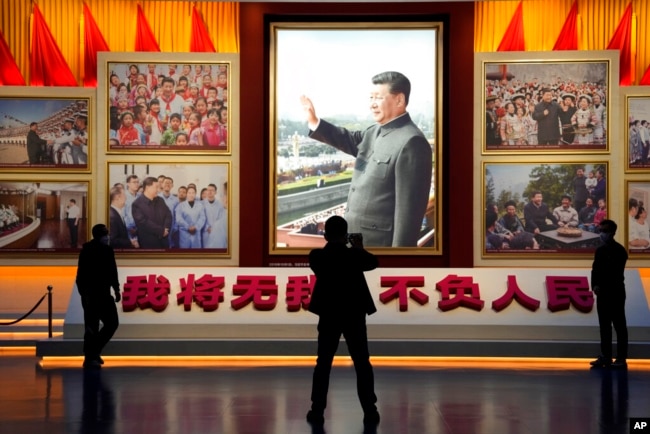A survey examining people’s views of China across 24 countries has reported that 67% of adults hold unfavorable views of the country and less than 28% of respondents speak favorably of China. In most high-income countries, negative views of China are at or near historic highs.
The Pew Research Center survey published Thursday gathered opinions from more than 27,000 adults from 24 countries between February 20 and May 22 of this year, focusing on respondents’ opinions on several issues related to China and their confidence in Chinese leader Xi Jinping. Countries featured in the survey include advanced economies in North America, Western Europe and Asia Pacific, and middle economies in Latin America and Africa.
Analysts told VOA that negative views of China in many countries are caused by the public’s perception of China as a threat to their economic interests and governance system, as well as the deteriorating human rights situation in China since Xi Jinping came to power.

“The deteriorating human rights situation in Xinjiang and Hong Kong pushed European countries to discuss how they can rebalance their relationship with China, and it includes steps to make themselves less exposed to China,” said Zsuzsa Anna Ferenczy, an assistant professor at the National Dong Hwa University, or NDHU, in Taiwan.
Researchers who conducted the survey note that major international events can affect people’s views of China. “We measured a substantial increase in unfavorable views of China in many high-income countries after the outbreak of the coronavirus pandemic,” Christine Huang, a research associate at Pew Research Center, told VOA.

Actions contradicting goals
When asked about China’s role in the world, 71% of the respondents said Beijing does not contribute to global peace and stability. The result comes as China attempts to frame itself as a “peacemaker” globally by brokering the historic peace deal between Iran and Saudi Arabia and issuing the 12-point peace plan on the Ukraine war earlier this year.
Despite Beijing’s efforts to project itself as a “global peacemaker,” some experts note that China’s failure to resolve territorial disputes with some countries contradicts its “peacemaker” image.
“There is a gap between China’s own goals and its actions in real life,” said Sana Hashmi, a fellow at the Taiwan-Asia Exchange Foundation, or TAEF, in Taipei.
In addition, 76% of the people say China doesn’t consider other countries’ interests when formulating its foreign policy, and more than half of the people (57%) think China meddles with other countries’ affairs to a great extent or a fair amount. In Italy, which has been contemplating leaving the Belt and Road Initiative in recent months, 82% of respondents think China will interfere in other countries’ affairs.
More favorable views
While views of China are generally negative, the survey found that some middle-income countries still hold favorable views of China, with India being the exception. More than half of the respondents in Kenya (72%), Nigeria (80%), and Mexico (57%) hold favorable views of China.

Huang from the Pew Research Center told VOA that past survey results suggest views of China tend to be less negative in countries with lower GDP per capita. “Fewer in middle-income countries criticize China’s global behavior and many more see China’s ‘soft power’ appeal,” she said.
Apart from holding generally positive views on China, middle-income countries think technological products from China are “well-made” and they offer favorable ratings on China’s entertainment products, its universities, and its standard of living, according to Huang.
Despite the more positive views of China, the percentage of negative views still increased in these countries over the last few years.
Negative views of Xi
The survey also finds that most of the 24 countries have little confidence in Chinese leader Xi Jinping’s ability to “do the right thing” when it comes to global affairs. At least half of the respondents in most countries across Western Europe, North America and the Asia Pacific say they have no confidence in Xi Jinping, while the majority of people in Indonesia, Kenya, and South Africa express confidence in Xi’s leadership on the global stage.
The researchers underscored that people’s confidence in Xi is closely related to their views of China. “In each country surveyed, people with unfavorable views of China are more likely to have little confidence in the Chinese president, and vice versa,” they concluded in the survey.

As Beijing struggles to sustain the momentum of its post-pandemic economic recovery, more people view the U.S. (42%) rather than China (33%) as the top economic power. The shift of recognition is more prominent in high-income countries like Germany, the Netherlands, and Sweden, where the percentage of respondents viewing China as the top economy in the world has fallen by double digits.
When asked which country is the greatest threat to the U.S., 50% of Americans name China as the biggest threat, and among these respondents, more than 70% think China poses “a great deal” of threat to the U.S. economy and national security.
Overall, some analysts think public perceptions of China in democratic countries can help shape relevant policies, as governments need to respond to public demands. “In the European context, pressure from the public can sometimes push governments to form a more solid policy toward China, as we saw in Germany,” Ferenczy from NDHU told VOA.
Hashmi from TAEF thinks the perception of China in most Global South countries is determined by the degree of their economic engagement with China.
Source : VOA News










